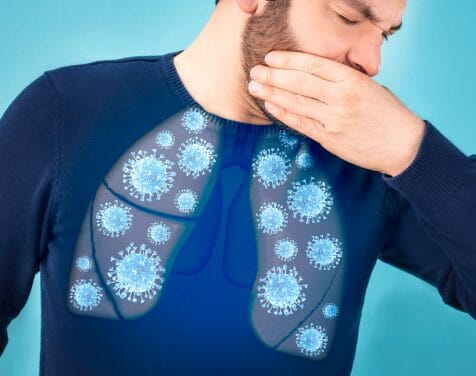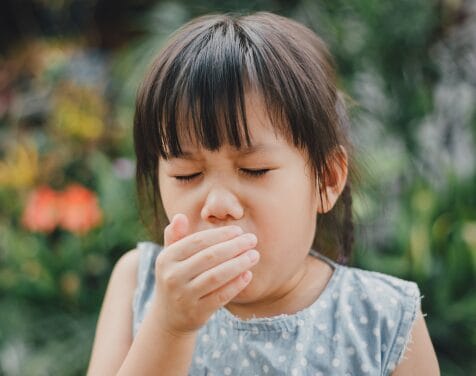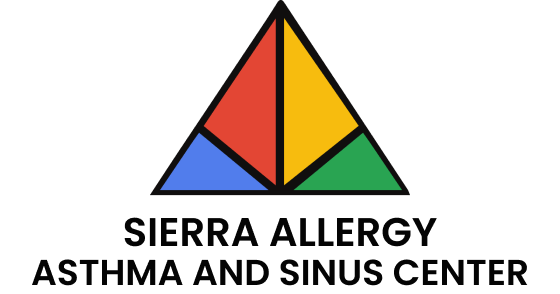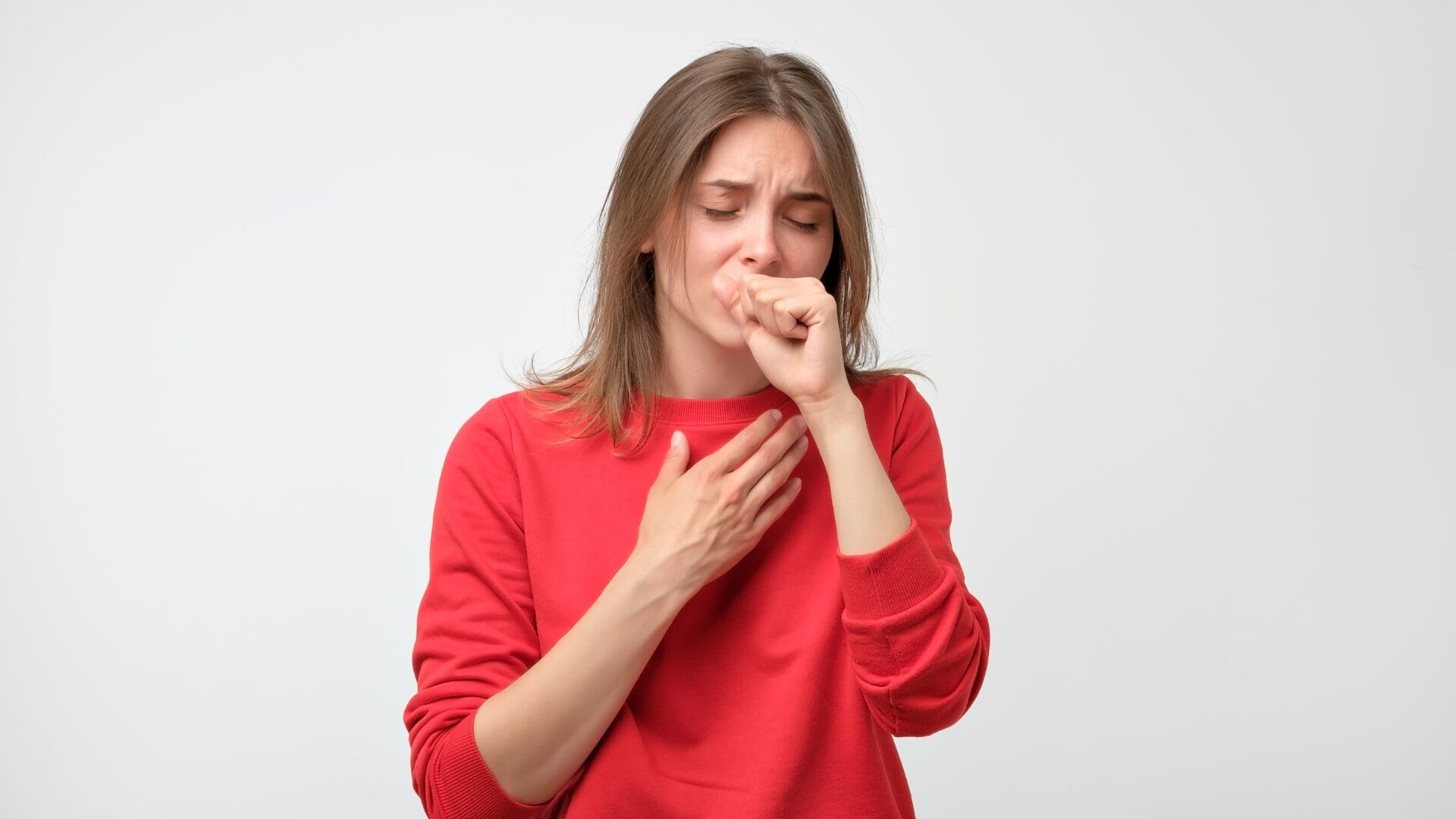Allergies occur when our immune system reacts to an external substance, such as pollen, pet dander, or certain foods. They can be very annoying, disrupting daily life. A very common question is whether allergies are to blame for sore throat and coughing. Let’s look into the connection between allergies and coughing in this article, with guidance on managing the symptoms.

The relationship between allergies and cough
An allergic reaction follows the release of histamines and other chemicals, causing inflammation and irritation in the airways, which leads to coughing as a way for the body to try to get rid of those irritants. Allergies make the back of your throat tickle and worsen sinus symptoms, leading to discomfort. A cough due to allergies isn’t contagious, but certainly annoying.
The different types of allergy-related coughing
There are two major types of allergy-related coughing: dry and productive coughs.
Dry cough
A dry cough is mostly caused by postnasal drip, which is a common allergy symptom. When mucus from nasal passages drips down the back of your throat, irritating the airways and leading to a persistent, non-productive cough.
Productive cough
Allergies cause your airways to produce excess mucus, leading to a productive cough, where the body tries to clear the excess mucus or phlegm. Chest congestion and wheezing may come along with a productive type of cough.
Common allergens that cause cough
1. Pollen
Pollen from grass, trees, and weeds can be inhaled and cause irritation in the respiratory system, leading to coughing.
2. Mold
Mold spores can be inhaled and cause an allergic reaction, triggering coughing and other respiratory symptoms.
3. Pet dander
Proteins found in pet skin and saliva can trigger an allergic reaction in some individuals, causing coughing and other symptoms.
4. Dust mites
These microscopic creatures live in household dust and can cause allergic reactions, including coughing, when their waste particles are inhaled.
5. Insect allergens
Insect allergens, such as cockroach particles, can trigger coughing and other respiratory symptoms.
Symptoms of a cough from allergies
A cough due to allergies is different from one from infections. Common symptoms of cough from allergies include:
- • Sneezing
- • Runny nose
- • Itchy eyes
- • Fever
- • Dry cough
- • Shortness of breath
- • Fatigue

Managing & preventing cough from allergies
For preventing allergy symptoms:
- • Avoid exposure to cigarette smoke and pets.
- • During peak allergy seasons, keep windows shut to minimize allergen exposure.
- • If heading outdoors, wear a mask for added protection.
- • Assign tasks like lawn mowing to others to reduce contact with allergens.
- • Maintain a clean living or work environment, especially if dust mites are a known trigger.
- • Steer clear of any foods that cause allergic reactions.
- • Consider using over-the-counter allergy relief medications to manage symptoms.
- • Rely on air-conditioning at home and in your vehicle to filter out allergens.
- • Choose a high-efficiency air filter for your HVAC system and keep up with routine maintenance.
- • Clean using a vacuum equipped with a HEPA filter for better allergen control.
For treatment of cough from allergies:
- • Antihistamines
These are medications made to reduce the number of histamines and can limit allergy symptoms like coughing
- • Steroid nasal sprays
Prescription medications that reduce inflammation in the nasal passages and thus control the symptoms of allergy
- • Allergy shots
Allergy shots or immunotherapy help the body to build a tolerance to specific allergens, reducing the severity of symptoms with time.
- • Decongestants
Decongestants help ease congestion and postnasal drip, which helps reduce the severity of cough.
Frequently Asked Questions
Can allergies really cause a cough?
Yes, allergies can cause both dry and productive coughs by irritating the airways through inflammation or postnasal drip.
What’s the difference between an allergy cough and a cold or infection cough?
An allergy-related cough is usually dry, persistent, and accompanied by symptoms like sneezing, itchy eyes, and runny nose—without fever or body aches, which are more common in infections.
Why do allergies cause dry cough?
Dry cough from allergies is often caused by postnasal drip, where mucus irritates the back of the throat and triggers coughing.
Can allergies cause a productive cough with mucus?
Yes, some people experience a productive cough due to excess mucus production from airway inflammation caused by allergens.
What are common allergens that trigger coughing?
Pollen, dust mites, pet dander, mold, and insect allergens are the most common triggers that cause allergy-related coughs.
Is an allergy cough contagious?
No, a cough caused by allergies is not contagious. It is an immune system response, not an infection.
How long does an allergy cough last?
An allergy cough can last as long as you’re exposed to the allergen. It often persists throughout allergy season or until proper treatment is started.
What treatments help with cough caused by allergies?
Antihistamines, nasal steroid sprays, decongestants, and allergy shots (immunotherapy) can help relieve and manage symptoms.
Can I prevent allergy-related coughing?
Yes. Avoiding allergens, keeping your environment clean, using HEPA filters, wearing masks outdoors, and managing your allergies with medication can help prevent coughing.
Should I see a doctor for an allergy cough?
Yes, if your cough is persistent, worsening, or affects your daily life, consult an allergist or healthcare provider for proper diagnosis and treatment.





